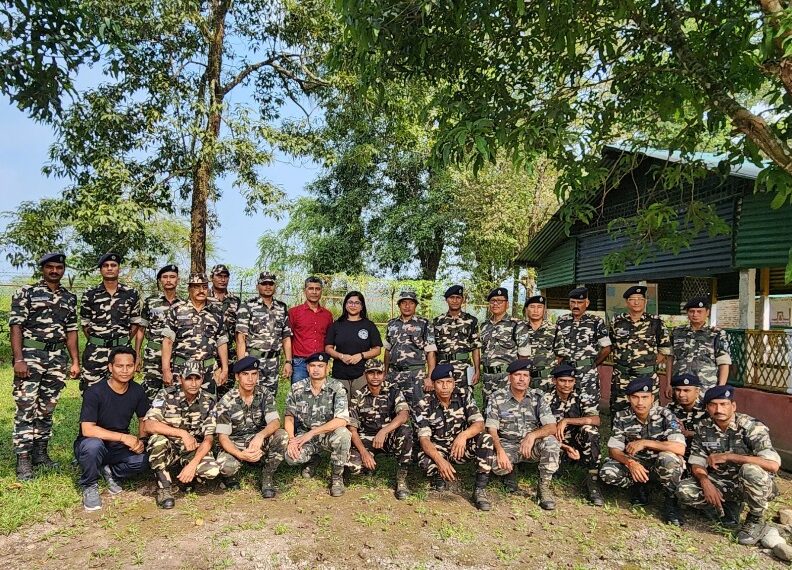Guwahati: Over 50 Sashastra Seema Bal (SSB) personnel, India’s leading border guarding force, recently participated in crucial workshops designed to strengthen wildlife crime prevention on the India-Bhutan border.
The SSB organized two crucial workshops on October 29 and 30 at two key Border Outposts (BOPs) – Phebsu and Mainaguri – along the India-Bhutan border. These workshops, held in biodiversity hotspots and known wildlife trafficking routes, were a significant step towards strengthening anti-wildlife crime initiatives.
The workshops were supported by Aaranyak, a leading research-driven biodiversity conservation organization in India.
The workshops fostered active engagement between SSB personnel and experts from Aaranyak’s Legal and Advocacy Division (LAD), including Dr. Jimmy Borah (Senior Manager) and Ivy Farheen Hussain (Senior Project Officer).
Aaranyak’s resource team presented an in-depth analysis of wildlife crime and its far-reaching implications on biodiversity and national security.
Experts emphasized that wildlife trafficking not only endangers global ecosystems but also fuels serious crimes like terrorism, drug trafficking, and arms smuggling.
With links extending to international markets in China and Vietnam, the illicit trade in wildlife products presents a pressing security concern.
Dr. Borah specifically addressed the vulnerability of transboundary areas, like the Indo-Bhutan border, to illegal wildlife trade. He explained how these biodiversity-rich regions, with inherent surveillance challenges, become critical routes for smuggling networks.
Dr. Borah stressed the need for advanced and coordinated surveillance along key transit points, including airports and known trafficking routes, to counter sophisticated smuggling operations that utilize both land and air routes to bypass security checks.
Hussain’s session focused on regional wildlife crime dynamics, providing the SSB team with insight into species frequently targeted by poachers in the Manas Transboundary area, such as tigers, rhinos, elephants, pangolins, tokay geckos, Himalayan black bears and barn owls.
She further elaborated on the motives and methods employed by offenders in the region, emphasizing the importance of rigorous evidence collection and scientific investigations for effective prosecution. Additionally, she highlighted the significance of a thorough understanding of relevant wildlife protection laws in tackling wildlife crimes.
ALSO READ: Assam: NGO Aaranyak organises training on homestead gardening in Udalguri
These workshops mark a vital collaboration between the SSB and Aaranyak, underlining the essential role of inter-agency coordination and cross-border collaboration in combating the global menace of wildlife crime.















